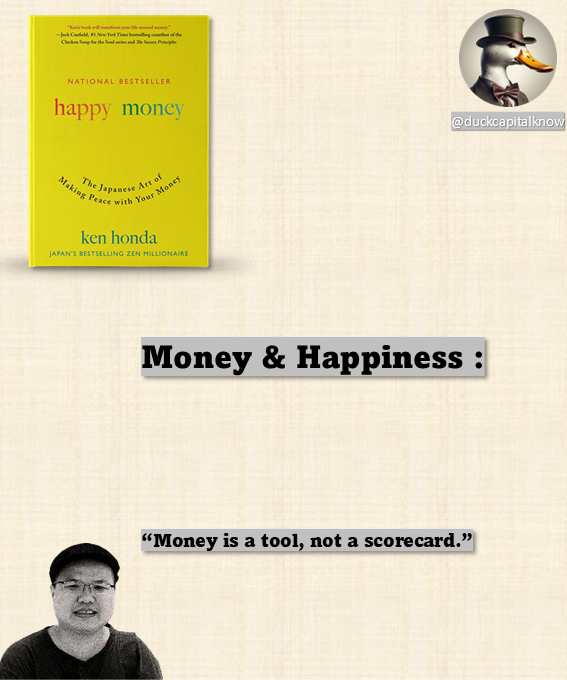
We’ve all heard the saying “money can’t buy happiness,” but the reality is a bit more nuanced. Recent studies have revealed an fascinating insight: while happiness does increase with income, this correlation has a ceiling. Beyond this threshold, additional income doesn’t significantly boost day-to-day happiness. This finding challenges our cultural assumption that more money always equals greater joy.1
We’ve all heard the saying “money can’t buy happiness,” but the reality is a bit more nuanced. Recent studies have revealed an fascinating insight: while happiness does increase with income, this correlation has a ceiling. Beyond this threshold, additional income doesn’t significantly boost day-to-day happiness. This finding challenges our cultural assumption that more money always equals greater joy.
But why does this ceiling exist?
The answer lies in understanding the relationship between financial security and emotional well-being. When we earn enough to cover our basic needs and have a comfortable buffer for emergencies, we experience what psychologists call “baseline security.” This foundational level of financial stability allows us to focus on other aspects of life that truly contribute to lasting happiness – relationships, personal growth, and meaningful experiences.
However, once we surpass this baseline, an interesting psychological phenomenon occurs. Additional income often brings additional complications:
– Higher stress from managing more complex finances
– Increased responsibility and time commitment to maintain wealth
– The pressure to maintain a certain lifestyle
– The constant comparison with peers who have even more
This doesn’t mean we should avoid earning more ? – rather, it suggests we need to develop a healthier relationship with money, regardless of our income level.
Building a Healthy Money Mindset
The key to financial contentment isn’t in the numbers on your bank statement, but in your approach to money. Here are some principles to consider:
1. Separate Your Worth from Your Wealth
Your value as a person isn’t determined by your income, investments, or possessions. These are tools that support your life, not measures of your success as a human being.
2. Define Your Personal “Enough”
Instead of chasing an ever-moving target of wealth, determine what “enough” means for you. This varies for everyone based on lifestyle, location, and personal values.
3. Focus on Financial Freedom, Not Wealth Accumulation
True financial success means having enough to live comfortably while maintaining control over your time and choices. This might mean earning less but having more freedom to pursue what matters to you.
4. Practice Gratitude
Regularly acknowledge and appreciate what you already have. This helps counter the “scarcity mindset” that can drive unhealthy financial behaviors.
Moving Forward
Understanding the complex relationship between money and happiness allows us to make better financial decisions. Rather than pursuing wealth for its own sake, we can focus on creating a financial foundation that supports our well-being without becoming the center of our existence.
Remember: Money is a tool, not a scorecard. When we view it this way, we can use it more effectively to create the life we want while maintaining our emotional and psychological well-being.
The goal isn’t to be the richest person in the room – it’s to have enough resources to live authentically and purposefully while maintaining peace of mind about our finances.
Want to learn more about developing a healthy relationship with money? Let’s connect and discuss how to align your financial strategy with your personal values and goals.
#FinancialWellness #MoneyMindset #WealthAndHappiness

- (this post is inspired by Honda, K. (2019). Happy money: The Japanese Art of Making Peace with Your Money. Gallery Books.) ↩︎